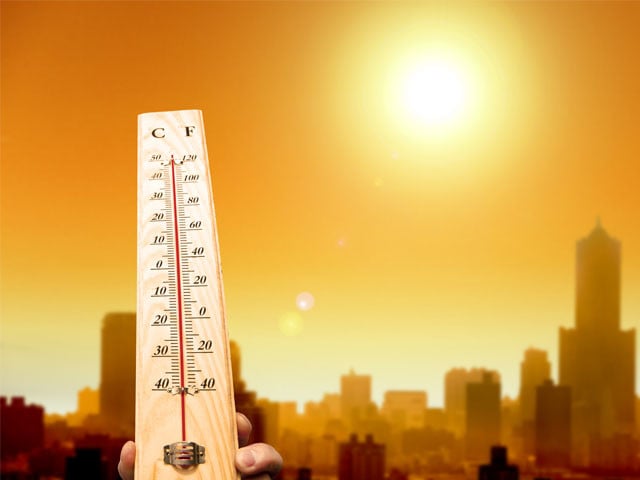Temperature Lahore Soars to 45°C, Heatwave to Persist
The Pakistan Meteorological Department has issued a heatwave alert from June 9 to June 12, due to high pressure over the region, with temperatures expected to be 5-7°C above normal in central and upper Punjab, Islamabad, Khyber Pakhtunkhwa, Kashmir, and Gilgit-Baltistan. Dust storms and gusty winds are also expected, and authorities have urged the public to take necessary precautions to stay safe.

A severe heatwave has gripped South Punjab, forcing people to stay indoors due to temperatures soaring up to 45 degrees Celsius, with the city of Lahore being one of the major urban areas affected, and is expected to persist until June 12.
The heatwave has resulted in public places being deserted, and traditional family outings or outdoor celebrations being limited. Residents have complained of feeling drained and preferring to stay indoors, especially after eating meat. A healthcare expert has warned of dehydration and fatigue, advising citizens to drink plenty of water, avoid sun exposure, and limit physical activity.
The Provincial Disaster Management Authority (PDMA) has confirmed that the heatwave is set to continue, with temperatures ranging between 4 and 7 degrees Celsius higher than average. The Met Office has issued a similar warning for Gilgit-Baltistan, predicting a temperature increase of 5 to 7 degrees. The city of Sargodha recorded the highest temperature in the province at 47°C, while major urban areas such as Lahore, Multan, and Faisalabad simmered at around 45°C.
The PDMA has directed all relevant agencies to remain on high alert, with critical emergency measures underway, including the provision of clean drinking water, activation of heatstroke counters, and stocking of essential medicines. Authorities are warning citizens about the severe risks posed by the extreme heat and advising the public to take immediate precautions.
The heatwave is part of a larger trend of accelerating warming in Pakistan, with the Economic Survey 2024-25 revealing that the country experienced its ninth warmest year on record in 2024. The public is urged to take precautions, especially children, women, and senior citizens, to avoid direct sunlight and stay hydrated, as rising temperatures may accelerate snowmelt in northern areas, impacting water levels.